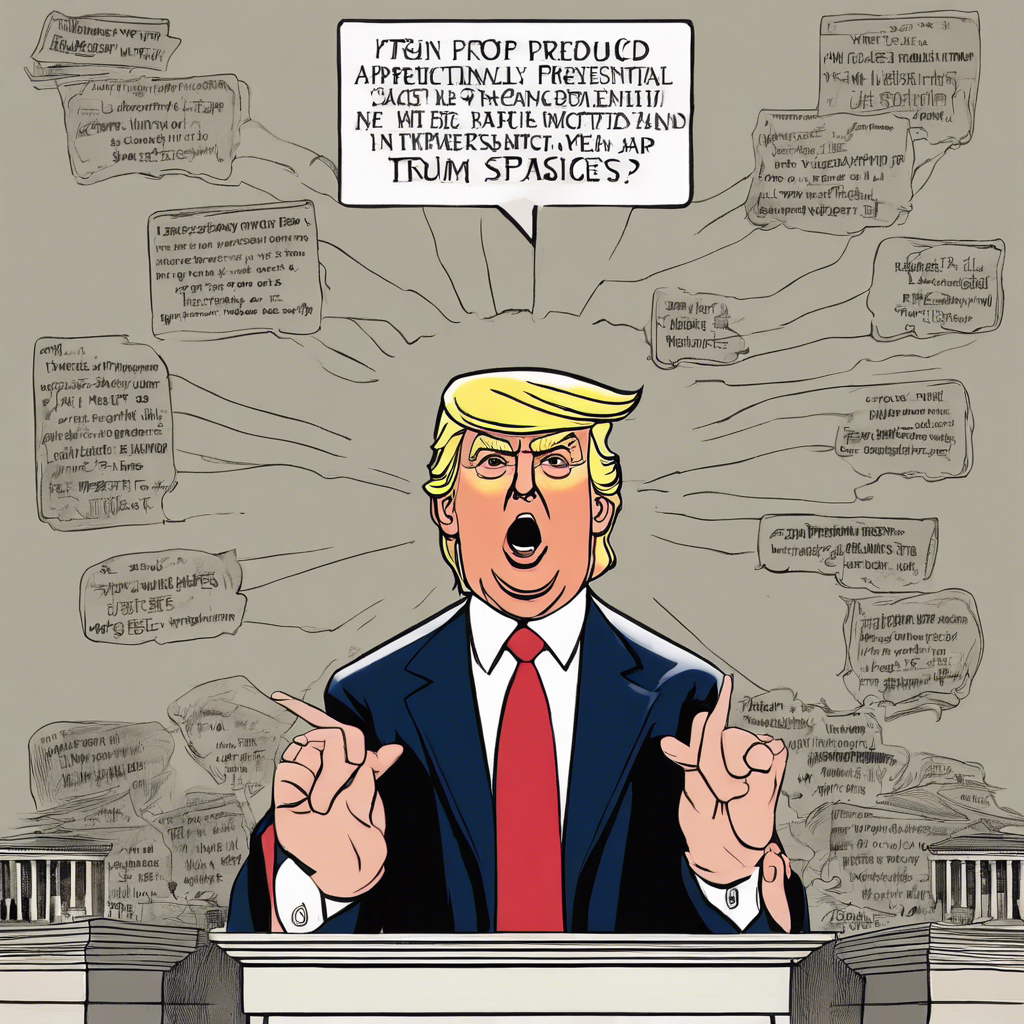Trump Argues for Presidential Immunity in Appeals Court, Claiming Political Motives in Prosecution

Former President’s attorney argues that Trump has absolute immunity from charges stemming from Special Counsel Jack Smith’s investigation, while warning of a politically motivated prosecution.
Former President Donald Trump’s attorney appeared before a federal appeals court on Tuesday to argue that Trump is entitled to presidential immunity from charges brought against him by Special Counsel Jack Smith. The hearing, which Trump attended, saw arguments from both sides, with Trump’s attorney claiming that the president has “absolute immunity,” even after leaving office. However, the judges seemed skeptical of this argument, leading to a debate about the limits of presidential immunity and the potential political motivations behind Trump’s prosecution.
The Argument for Presidential Immunity
Trump’s attorney, D. John Sauer, argued before the federal D.C. Appeals Court that the former president enjoys absolute immunity, even after leaving office. He claimed that President Biden is “prosecuting his number one political opponent and his greatest electoral threat.” Sauer’s argument was met with skepticism from the judges, who questioned whether presidential immunity allows a president to violate criminal law.
The Limits of Presidential Immunity
Judge Karen Henderson, an appointee of former President George H.W. Bush, challenged Sauer’s argument, stating that it is paradoxical to claim that a president’s duty to execute the laws allows him to break them. The judges seemed inclined to reject the notion of absolute immunity for a former president, raising questions about the extent to which a president can be shielded from prosecution.
Smith’s Argument Against Presidential Immunity
Special Counsel Jack Smith’s team argued that presidents are not entitled to absolute immunity and that Trump’s alleged actions fall outside the scope of a president’s official duties. Prosecutor James Pearce stated that a former president enjoys no immunity from prosecution and that recognizing immunity in this case would set a dangerous precedent. He emphasized that the allegations against Trump, involving an attempt to overturn an election, are unprecedented and warrant prosecution.
Balancing Separation of Powers and Accountability
Judge Henderson pressed Pearce on how the court’s decision would impact future investigations against ex-presidents. Pearce reassured the court that there would not be a flood of vindictive prosecutions, stating that the allegations against Trump are unique and require a mechanism for criminal accountability. He argued that failing to prosecute Trump would lead to a frightening future for the country.
The Frightening Future and Political Ramifications
Sauer pushed back against Pearce’s argument, warning that prosecuting Trump would open the floodgates for future cycles of recrimination and shake the foundations of the republic. He highlighted the fact that Trump is currently the frontrunner in polls for the upcoming national election and accused the Biden administration of targeting its chief political opponent. Sauer argued that a president must have immunity to prevent such politically motivated prosecutions.
Conclusion:
The question of presidential immunity has taken center stage as former President Donald Trump’s attorney argued before a federal appeals court. While Trump claims absolute immunity from charges brought against him by Special Counsel Jack Smith, the judges appeared skeptical of this argument. The case raises important questions about the limits of presidential immunity and the potential for politically motivated prosecutions. As the court deliberates its decision, the outcome will have significant implications for the balance between the separation of powers and the accountability of former presidents.

